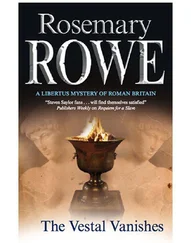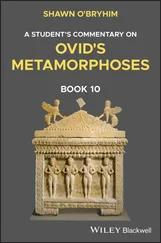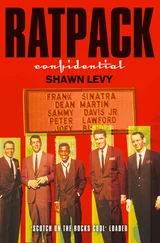Before now, the idea that Dean had parents of his own, that he grew up with brothers and sisters, had not entered Loretta’s mind. Then he received a phone call from a friend in the Reorganized LDS Church in Hagerman, Idaho, who’d seen an obituary for Dean’s father in the Times-News . Dean’s name had not been included among the survivors. The friend thought perhaps his family had failed to notify him.
“It is just the kind of betrayal I would have expected from Louis,” Dean said that night, after the children were asleep, as he and Ruth and Loretta discussed what would happen now. Dean would have something coming up there, surely. Land, money. He would have an inheritance to claim.
“Even if I have to force it,” he said.
“It’s only what’s right, Father,” Ruth said. “You can never be wrong when you stand up for what’s right.”
Dean smiled at her. She did this for him, Loretta saw: confirmed him in his positions. Dean sometimes came to Loretta for the same thing, asking her without directly asking her to support him in his interpretations of scripture, in his decisions about disciplining the children, in the products he would add or remove from the Zion’s Harvest inventory, in his recent battles with the Council of Elders. He was not seeking permission or anything like it; Dean knew what he thought was right. And yet there was something in him that needed support and confirmation.
Dean drank hot Postum with dehydrated milk. Ruth nibbled raisins one at a time, aggressively. She did most of the talking, but Dean gave the final word. Every so often, Dean would look at Loretta, as though remembering to include her. Loretta was hungry, but not hungry enough to eat whatever was available here; before, back with her parents, there had always been a bounty of junk food, sugar cereal and potato chips and store cookies, and now Loretta sometimes feels as if she were starving. When the children complain of hunger, Ruth suggests to them that they chew on kernels of raw wheat, and they do, chewing and chewing until it forms a gum, but Loretta wants nothing to do with Ruth’s food, with raw wheat and carob and one-at-a-time raisins.
“Maybe this can be your way,” Ruth said. “Maybe the Lord is bringing you an opportunity to overcome your obstacles. With the council and such.”
Dean had left the Council of Elders. There had been talk of disfellowship. Excommunication.
Ruth said, “How about this, Father? You and me and the children go to Idaho for the funeral, and Aunt Loretta stays behind here. Minds the house. Takes orders. We can see what the situation is like there. Consider. There’s no need for us to introduce anything just yet that requires extra explanation.”
Dean and Ruth cast cool, appraising looks at Loretta, and Loretta felt as if she were more their child than their spouse. They were wondering, she could see, whether they could trust her.
“You make good sense, Mother,” Dean said at last. “As usual.”
• • •
It is not quite seven thirty. Loretta remembers a time she would have considered this early. She can’t remember the last time she just wallowed around in bed. Every day, she drags herself out, against her will and ahead of the sun.
Why is she not going?
She can make each of the competing arguments to herself: Go now. Go alone. Go with Bradshaw. Wait and plot and gather “provisions,” as Bradshaw calls it in his letters, and leave with Bradshaw. Or without him. Or. Or. Or. Her mind circles the options constantly, but now she realizes that she isn’t waiting for one of those options to clarify — she’s waiting for something else. Another choice. Another way. But all that thinking has nothing to do with why she’s not leaving. She simply feels it. She is not going.
She does not relish this life in any sense. She despises it, feels it like a web holding her in place. But she knows it. It is all she knows. And what she tells herself she wants — freedom, a worldly life, music, magazine life, slacks, and makeup — of that world, she knows absolutely nothing. She thinks of the Tussy ad. “Win a Mustang to Match Your Lipstick!” The brazen girl on the hood of the pink, pink car, so colorful and bold and distant. An eternity away from here.
She will not think of herself as afraid.
Seven forty-five. Bradshaw arrives each morning at eight. He knows nothing of what’s gone on here. Dean trusts him. There is an idea in the air — a hint, an undecided notion — that they could all just leave here, escape the problems with the brotherhood, and that Bradshaw could help run the business here while they are away. When Bradshaw understands what is happening, he will want to go. He will want to go, go, go.
• • •
Dean told Loretta his story with a neatness she distrusted — a mosaic of cause and effect dragged into the service of the ideas Dean wanted to convey about himself. That he had been raised in a misshapen faith, in a perverted version of the truth, and that he had found his way to the light.
He grew up in the mainstream church in southern Idaho, the oldest of five. His father held leadership roles in the local ward — a bishop or a member of the bishopric, a high councillor, the stake president — and the family was stalwart, at the wardhouse on Sundays and at the farmers co-op on Mondays and at the livestock auctions on Fridays at the fairgrounds. Though the church and its demands were great, Dean found himself at a young age wanting more rigor. More fire. In prayer, during the sacrament, while reading scripture, he would feel liquefied in the forge of the Lord, and when he emerged, he would see that his fellows were the same earthen lumps. They had not entered the fire. When he accompanied his father to the auctions or the cafés, and he watched him laugh and glad-hand with the worldly men, the farmers telling crude jokes or smoking cigarettes, he resented his father for not turning his back on these men and their ways.
He came to know some of the Reorganized LDS members down in Hagerman. The RLDS was a small sect that had broken away from the mainstream church more than a hundred years ago. Little pockets of the church stayed true, tiny congregations here and there around the country. There was something clandestine about them that fed Dean’s desires. They were polygamists, and as Dean studied the origins of the faith, he began to see that the principle of plural marriage kept returning — godly men building lineages of righteousness. As he read the writings of Joseph Smith and Brigham Young, as he read the Old Testament with new eyes, he began to understand that there was a wide range of Mormon believers out there, a variety of little shoots and branches off the main body of the faith, and that one of these might contain the truth that the mainstream church had forsaken, and that the Principle stood at the center of this truth.
He was twenty-three, working the farm with his father while Louis served his mission, when federal agents raided the Saints in Short Creek. The officers tore children from the arms of their mothers and held righteous men at gunpoint, wicked and prideful, while the newspaper whores took photographs. A clarion to awaken the righteous, Dean had whispered to Loretta, telling her this story late into the night. Your aunt Ruth was one of those children.
His devotion grew until the Hagerman congregation could not contain it. Five years later, at the end of the harvest, he traveled to Short Creek. He returned home just once after that, a month later, when he held counsel with his father and his brother, poring over scripture and urging them to reject the mainstream church and join the brethren in Short Creek. When they told him they would not, he knew they were filled not simply with wickedness but with the most dangerous belief on earth — that their wickedness was righteousness.
Читать дальше












